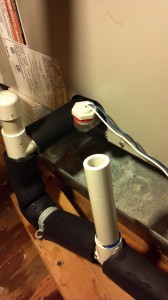How about some Hvac Training for homeowners? Simple questions pop up in my stats every day and I feel that the searchers aren’t getting their questions answered completely. So I have compiled a list of questions that people have searched for and found my page with, specifically homeowners. On top of that I have also added some of the most frequent asked questions that I get from customers.
Let’s face it, homeowners that aren’t educated about their Hvac system make us service technicians money. When homeowners neglect getting preventative maintenance done on their system and neglect other things like monthly filter changes, it can damage the air conditioning and heating equipment. So let’s answer some questions and get some Hvac training for the homeowner who wants to keep their unit up to par.
How often should I change my air filter?
I tell all my customers that it depends on the living conditions. If the home is occupied year round you are going to want to check the air filter once a month. If you are a seasonal resident the home may be able to go 3-6 months without being replaced. Bottom line is the more people, and the more often a home is occupied, the faster the air filter gets dirty, that’s just how it is.
If you have pets such as cats and dogs, your air filter is going to get dirty faster. If you carpet, its going to get dirtier faster. So depending on your living conditions, and what type of air filter your have in your hvac system, will determine how often you should change it.
For instance 4 inch wide Merv 10-16 filters may last you 6-12 months, even if the household is occupied full time. You are going to have to determine when it’s time to change your filter. If you buy the cheap fiber spun filters, you may need to change them monthly. Basically if you put a brand new filter up to the one that’s in your system, and the old one looks discolored, its time for a new filter, if you hold the old filter up to a light and can’t see through it, its way past due and internal damage may have already been done to your compressor.
What’s the lowest temperature I can set my thermostat?
Don’t go lower than 72 degrees, period. Also, don’t set your thermostat lower than the outside ambient temperature in cooler months. Air conditioners are made to dehumidify the home, not turn it into an ice box. If you want your home freezing cold the get a commercial refrigeration system – kidding.
When you set that thermostat below 72 degrees Fahrenheit, your evaporator coil starts to get very very cold. On super hot days you may get away with this, but you can actually get that evaporator coil so cold the refrigerant may still be in liquid form when returning to the compressor, which will eventually kill your compressor if you are one of those homeowners that love setting their thermostat to cold temperatures.
Why is my air conditioning freezing up?
Lack of air flow such as clogged a/c filter. Undercharged with refrigerant. Bad expansion valve. Indoor blower motor bad or defective. Setting your thermostat too low, especially when it’s below 80 degrees outside. I covered this topic right here….
What does the a/c drain line look like?
Air conditioning drain lines on central cooling units are located at the air handler. In residential homes they are commonly made of pvc or even cpvc. If your air handler is located in the attic it may and should have armaflex over it, this is to prevent the pvc from sweating and potentially causing water damage. 
Condensate drain lines get clogged, so in order to unclog a condensate drain line, you must be able to locate and identify the condensate drain line on both the inside and outside (if applicable). Keeping your drain line clean is part of preventative maintenance and can save your money on service calls and possible flooding and water damage. You can learn more about keeping your condensation line clean here.
How Can I Tell if My Unit is Cooling?
The very first thing I do when I walk into a customers home to perform preventative maintenance, is I look at the thermostat and note if it’s achieved the set point for cooling. For instance if the thermostat has been set at 74* all day, and its 95* outside, and your thermostat doesn’t ever reach set temperature of 74*, and hangs around 77 or more, then your unit is not cooling properly.
Another way that a homeowner can test if their residential air conditioning unit is cooling is to take a Delta T, or as I call it a TD, temperature difference, temperature drop. This is where you get a thermometer and measure the indoor air temperature right before the evaporator coil, and right after the blower motor. Basically if you have a horizontal air handler, stick the thermometer in the duct work before the air handler and then after the air handler. Record the temperatures and then subtract your supply air temperature from your return air temperature. This is your TD, or delta T.
If you have a R-22 system you are looking for a 17-21 degree temperature difference, for 410a residential systems you are looking for 16-18 degree temperature difference. Remember though, these are just ball park numbers, it will get you close but not perfect, and as humidity changes so will your TD. There are more accurate ways of measuring temperature difference by using your return wetbulb and drybulb temp to calculate your Target Exit Evap Temp, but this requires more than a simple thermometer and temperature charts.
One last way the homeowner can get a ball park idea if their air conditioning unit is cooling or not is to feel the temperature of the air being discharged from the outside fan motor. On residential units, your should feel hot air being discharged from the top of the fan motor. If you are in heat pump mode or have a pool heater, you should feel very cold air being discharged from the top of the fan motor. If you feel air being discharged from the condensing coils, and sucking in from the top of the fan, then it’s probably running backwards.
Home owners please submit your Hvac questions in a comment and I will do my best to answer them. Be aware that Hvac is a very technical trade and service technicians are properly trained through schooling and experience to troubleshoot problems, so DIY questions may not be answered.
